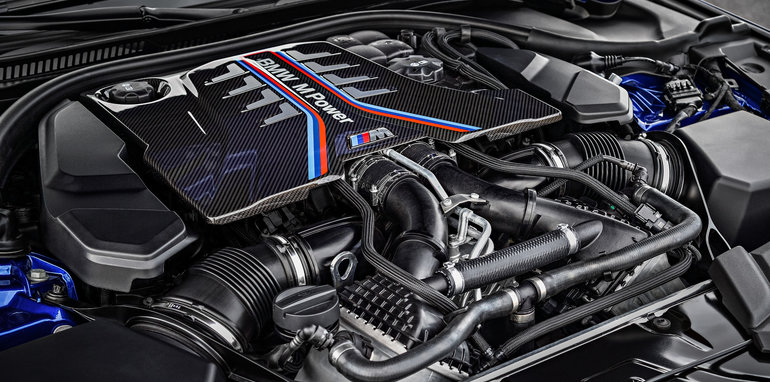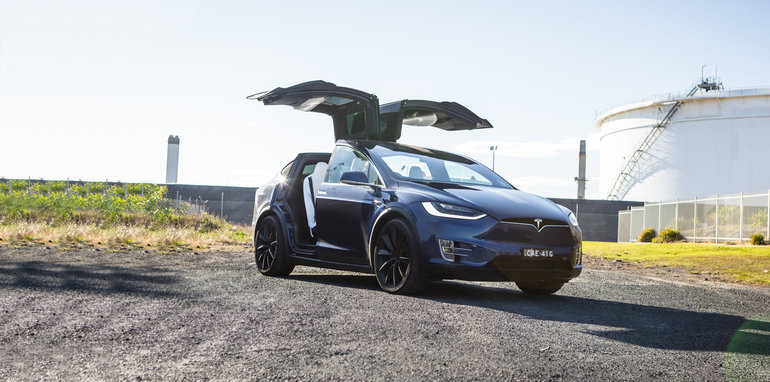Lithium stocks, particularly lithium mining stocks, have been white-hot since 2016. The Tesla-led electric car revolution is driving demand for the silvery-white metal to make lithium-ion batteries that power electric vehicles.
Tesla's first mass-market vehicle, the Model 3, began shipping in July, and promises to significantly rev up lithium demand. Moreover, the Chinese EV market is particularly booming, and all the world's major automakers are in the early stages of launching EVs.
So what are the best lithium stocks to profit from the EV revolution?
Lithium mining stocks
Here are lithium mining stocks with market caps over $300 million that trade on a U.S. stock exchange.
Company
Market Cap
Dividend Yield
1-Year Return
6-Year Return*
5-Year Projected Avg. Annual EPS Growth Rate
Forward P/E
Sociedad Quimica y Minera de Chile, or SQM (NYSE: SQM)
$16.3 billion 1.32% 152% 20.2%
32.5%
35.2
Albemarle Corporation (NYSE: ALB)
$14.9 billion 1.01% 77.2% 223% 15% 26.9
FMC Corp. (NYSE: FMC)
$12.4 billion 0.74% 95% 156% 16.6% 18.1 Galaxy Resources*
$838 million
N/A 59.3% (37.7%) N/A N/A Orocobre*
$719 million
N/A 18.6% 144% N/A N/A Lithium Americas*
$592 million
N/A 84.1% 176% N/A N/A Nemaska Lithium*
$446 million
N/A 9.3% 205% N/A N/A
S&P 500
N/A 1.91% 19.6% 137% N/A N/A
Data sources: Y!Finance and YCharts. Data to Sept. 19, 2017. Boldfaced returns have beaten the S&P 500. *Trade over the counter in the U.S. Galaxy and Orocobre are based in Australia, and Lithium Americas and Nemaska are Canadian companies. May be other lithium stocks trading OTC that meet market cap criteria. **Max full-year charting period available that includes all stocks.
Best 3 lithium stocks for most individual investors
Albemarle, SQM, and FMC are by far the largest lithium players that are traded on a major U.S. stock exchange, though none are pure plays. So they are the best stocks for most individual investors wanting exposure to lithium.
There are a handful of small junior miners and numerous tiny players. They are more speculative, to varying degrees, and most are unprofitable. It takes a massive amount of money, not to mention a long time, for junior miners to go from exploration to profitable production -- and the vast majority of them won't make that transition. Only investors with a high risk tolerance should consider investing in a junior miner.
Image source: Getty Images.
The best lithium stock: Albemarle, the world's largest lithium producer
Albemarle has leading market positions in lithium, bromine, and refining catalysts. Global lithium market share estimates vary quite widely by source, but it seems safe to say that North Carolina-based Albemarle is the world's largest lithium producer with Chile's SQM a close runner-up.
The best market share estimates, in my opinion, come from lithium expert Joe Lowry, who runs Global Lithium LLC: Albemarle, 22%, SQM, 21%, China's Jiangxi Ganfeng, 12%, FMC, 10%, China's Sichuan Tianqi, 10%; and other, 25%. While the numbers have surely changed a bit over the past couple of years, the two key things to remember are Albemarle and SQM are the "Big Two" and the Chinese have been gaining share.
Albemarle has three independent sources of lithium:
Salar de Atacama, Chile. (A "salar" is an underground salt lake.) Silver Peak, Nev. (Lithium source is also brine.) Talison Lithium joint venture with Tianqi in Western Australia. (Lithium source is hard rock, or spodumene.) Albemarle remains the best lithium stock for most investors for two main reasons, in my opinion. First, it's based in the U.S., so it doesn't have SQM's higher risk level stemming from being headquartered in an emerging market. Second, it's closer than FMC Corp. to a pure play on lithium, as per the following chart.
Company First-Half 2017 Lithium Revenue As a % of Total Revenue First-Half 2017 Lithium Profit* As a % of Total Profit Albemarle 31.5% 58.1% (of total segment adjusted EBITDA**) SQM 29% 61% (of total gross profit) FMC Corp. 11.1% 20.4% (of total segment operating profit)
Numbers calculated by author using companies' Q2 earnings reports. *The companies use varying profit metrics for segment results. **EBITDA = earnings before interest, taxes, depreciation, and amortization.
In its most recent quarter, Q2 2017, Albemarle's lithium revenue jumped 55% to $243.8 million, accounting for 33% of its total revenue. The lithium segment's EBITDA soared 80% to $115.2 million, accounting for 60% of the company's total EBITDA from its operating units. Profitability growth has been increasing faster than revenue growth because lithium demand has been outpacing supply, driving up prices. So the segment's results have been benefiting from the dynamic duo of higher sales volumes and higher prices. Similar dynamics have been playing out with SQM and FMC.
Albemarle has been expanding production to help keep up with rising lithium demand:
In early 2017, it announced that it received approval from the Chilean authorities to extract enough lithium to increase its annual Chilean battery-grade lithium carbonate production from 70,000 metric tons (MT) to 90,000 MT over the next four years. This modest increase came on the heels of a huge increase, as in early 2016, it received approval to hike this number from 24,000 MT to 70,000 MT. In March 2017, it announced an expansion at its joint venture in Greenbushes that will more than double that operation's lithium carbonate equivalent (LCE) production capacity from 80,000 MT per year to more than 160,000 MT per year. Albemarle has a 50% interest in what's produced at this JV. This expansion is slated to begin in Q2 of 2019. Albemarle could also have a potentially very promising new lithium source coming on line in the future. In the fall of 2016, it announced an agreement with Bolland Minera S.A. for the exclusive exploration-and-acquisition rights to a lithium resource in Antofalla, within the Catamarca Province of Argentina. Albemarle said at the time that it believed this resource would be certified as the largest lithium resource in Argentina.
Wall Street analysts expect Albemarle's earnings per share (EPS) to increase at an average annual rate of 15% over the next five years. That's lower than the 32.5% forecast for SQM but higher than the 13.7% estimate for FMC. It's highly likely that Albemarle will exceed this expectation, in my opinion. The company routinely beats analysts estimates, and analysts keep moving their estimates up.
Lithium salt flats. Image source: Getty Images.
SQM: A lithium stock for investors comfortable with higher risk
Sociedad Quimica y Minera de Chile, or SQM, has five business segments: lithium and derivatives, specialty plant nutrition, iodine and derivatives, industrial chemicals, and potassium. Its lithium source is nearby Albemarle's Chilean lithium source at the Atacama Salt Desert. Like Albemarle, Chile-based SQM extracts lithium chloride (and other minerals) from underground brine. It then produces lithium carbonate, lithium hydroxide, and other downstream products at its plants at this location.
Positively, SQM -- which is also expanding lithium production -- has had a strong free cash flow (FCF) over the last year, which is significantly more than its reported net income. That said, only investors with higher risk tolerances should consider diving in, as SQM has risks associated with emerging markets -- including political and currency risks. Indeed, SQM was mired in financial and political scandal as recently as 2015, which led to the firing of its CEO, and the forced resignation of its former chairman, a former son-in-law of late dictator Augusto Pinochet.
SQM's total return has surged 89% from July 1 through Sept. 19. Lithium stocks in general have had a strong run over this period. However, we can attribute the bulk of this outperformance to reports in July that a Chinese company is interested in buying a significant stake in SQM. Jumping in based solely on market chatter -- especially late in the game -- can be risky because if the speculation doesn't come to fruition, a stock can sink as quickly as it ran up.
FMC: Some positives, but lithium business is relatively small
FMC has three segments -- lithium, agricultural solutions, and health and nutrition -- but it will soon be transferring the latter business to DuPont. The Philadelphia-based company has some distinct positives, but its lithium business accounts for a much smaller percentage of its total revenue and profits -- 11% and 20%, respectively -- relative to Albemarle and SQM. So investors wanting a significant exposure to lithium should probably take a pass.
Image source: Getty Images.
That said, FMC is also expanding its lithium production capacity to help meet strong demand for battery-grade lithium hydroxide. In May, it announced a three-phase expansion plan to triple its annual production capacity of lithium hydroxide to at least 30,000 MT by 2019. The first part of the three-phase expansion started coming on line in the second quarter.
FMC claims that it's the most vertically integrated company in the lithium industry. It owns its lithium source, the Salar del Hombre Muerto in Argentina, and processing and production facilities, where the lithium carbonate that is produced from lithium chloride is further refined into such products as lithium metals and lithium hydroxide, bromide, and hypochloride. Neither Albemarle nor SQM own their Chilean lithium sources.
Earlier this year, the market cheered when FMC announced that it was acquiring the portion of DuPont's crop protection business that the European Commission ruled it must divest in order to merge with Dow Chemical. In exchange, DuPont will get FMC's health and nutrition business and $1.2 billion in cash. FMC recently said that it continues to expect these transactions will close on Nov. 1.
Wrapping it up
Lithium stocks have run up considerably since early 2016. So there could be pullbacks over the near and intermediate terms. However, select higher-quality lithium stocks have good long-term growth potential, in my opinion. That's because I continue to believe EV sales will grow faster than most market-watchers project.
Keep in mind that none of the three big players highlighted are pure plays on lithium, so their financial results and stock prices will also be affected by how well their other businesses are performing.
10 stocks we like better than Albemarle
When investing geniuses David and Tom Gardner have a stock tip, it can pay to listen. After all, the newsletter they have run for over a decade, Motley Fool Stock Advisor, has tripled the market.*
David and Tom just revealed what they believe are the 10 best stocks for investors to buy right now... and Albemarle wasn't one of them! That's right -- they think these 10 stocks are even better buys.
*Stock Advisor returns as of September 5, 2017
Beth McKenna has no position in any of the stocks mentioned. The Motley Fool has no position in any of the stocks mentioned. The Motley Fool has a disclosure policy.
Source:
3 Lithium Stocks to Profit From the Tesla-Led Electric-Car Revolution
![All Electric Cars: What's My Range? [INFOGRAPHIC]](https://futurism.com/wp-content/uploads/2016/06/HomeThumb_v3-900x600.jpg) Click to View Full Infographic
Click to View Full Infographic 





